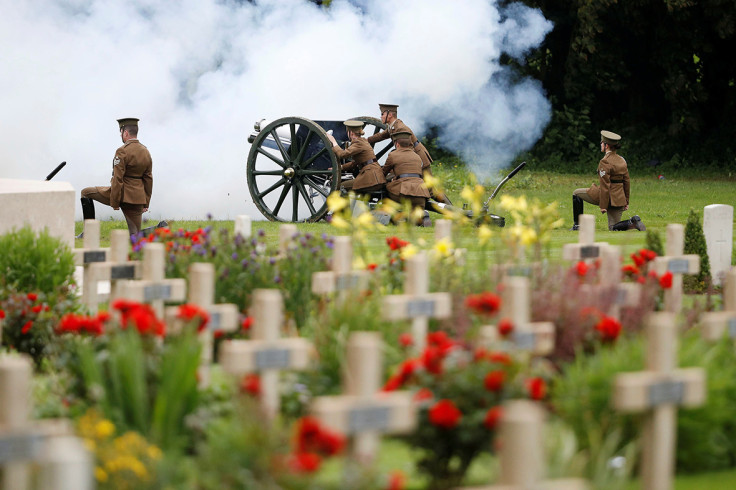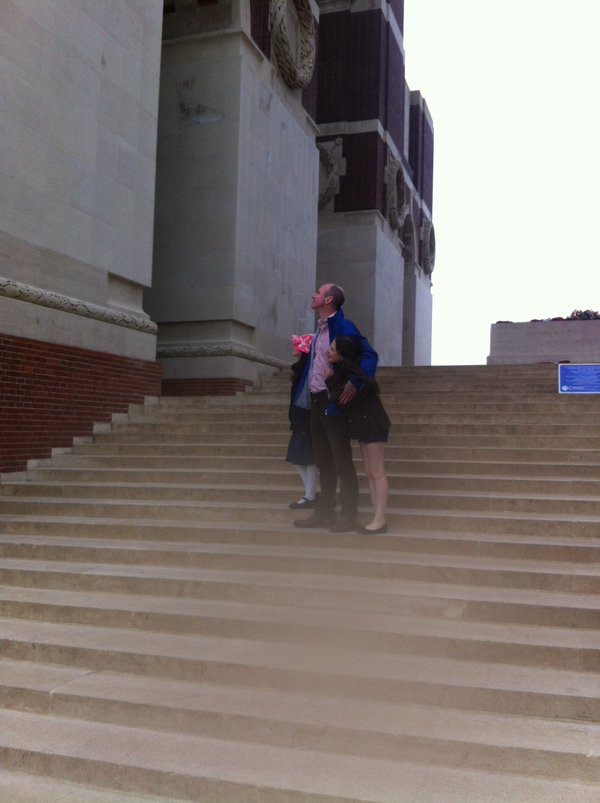My great-uncle fell at the Somme - we must not forget the ordinary men who did extraordinary things
Bill Hannan's name is recorded alongside 72,000 British and South African soldiers at at Thiepval.

There's a scene in the film version of The Lord of the Rings that doesn't appear in the book, but that I always find rather beautiful. Frodo and Sam meet a patrol from Minas Tirith, whose leader, the noble-hearted Faramir, asks Sam whether he is Frodo's bodyguard. "Oi'm 'is gardener", replies the little hobbit, in a manner that is supposed to be dignified, but that comes across as comical. When the time comes to part ways, Faramir, by now overcome with respect, tells Sam: "Truly the Shire must be a great realm, Master Samwise, where gardeners are held in high honour".
The director, Peter Jackson, was making explicit something that Tolkien had left as subtext. Sam, having spent his life tending to living things, is about to be plunged into a world of poison and sterility. Tolkien later admitted that Sam had been modelled on the NCOs with whom he had served during the Battle of the Somme, when he was a signals officer with the Lancashire Fusiliers. The approach to Mordor, similarly, was inspired by the wreckage of Northern France during that battle. Tolkien's landscape, filthy, pock-marked by craters, infected by noxious vapours, devoid of any life save enemy troop movements, haunts the reader as grimly as any of Siegfried Sassoon's verses:
"Here nothing lived, not even the leprous growths that feed on rottenness. The gasping pools were choked with ash and crawling muds, sickly white and grey, as if the mountains had vomited the filth of their entrails on the lands about."
The Battle of the Somme has been on my mind all week, as have gardeners. It is precisely 100 years since another gardener, a 24-year-old corporal with the Cheshire Regiment, was lost in no-man's-land during that hellish mêlée. He was called Bill Hannan, and he was my great-uncle. His name is recorded along with those of 72,000 British and South African soldiers at the skeletal memorial that Lutyens built at Thiepval. That number is vast enough, but these were only the men whose remains could not be recovered, the men with no graves.
In the bloodiest of Britain's wars, the Somme was the bloodiest battle. On its first day, 19,200 men fell, by far the worst 24 hours in the history of the British Army. A hundred years later, we still struggle to take in the magnitude of that slaughter.
The Royal British Legion has an extraordinary website that invites us to leave a virtual poppy for each of the 1.1 million men who fell during the Great War. Type in your surname (or, if you're male, your full name), count how many matches come up, and feel the tragedy grab you on the stomach a century on.
He stands for all the gardeners – and all the tram-divers and the steel workers and the barbers, all the ordinary men who did extraordinary things.
No country in Europe commemorates the First World War with such intensity. Yet, oddly, several nations suffered proportionately heavier casualties: Austria, Bulgaria, France, Greece, Germany, Italy, Romania, Serbia and Turkey all lost more men per capita. Why is Remembrance Sunday observed so much more keenly in Britain?
Partly because some countries have more recent tragedies to remember, having suffered worse losses during the Second World War or under Communism. Mainly, though, because the First World War burst upon a settled and ordered Britain. The United Kingdom in 1914 was not just the world's superpower. It was also the most peaceful and orderly society on the planet. Unlike many of the other combatants, Britain was not invaded or forced to fight; she made a conscious decision to join the war. All tragedy depends, at least in part, upon the possibility that it might have been avoided.
How many gardeners, like my great uncle, left their flower-beds for mud and filthy sumps? How many swapped their shears for gas masks? How many grew, Sam-like, into the unlikeliest of heroes?

Two years after the Armistice, Rudyard Kipling wrote an unwontedly restrained and sombre short story called "The Gardener". It tells of a woman whose nephew has gone missing in action. After the war, she eventually finds the military graveyard where he is buried – and only now does the reader discover that he was in fact her illegitimate son.
Arriving at the cemetery, she finds a man planting flowers in the earth and asks him where she might find her "nephew". The man looks at her "with infinite compassion," and tells her: "Come with me, and I will show you where your son lies." As she leaves the graveyard, she looks back, sees the man bending over his plants, and "she went away, supposing him to be the gardener".
The words echo Mary Magdalene's encounter with the Risen Jesus. To Kipling, who had lost his own son in the fighting, the Easter reference was a natural one. His readers would have understood and sympathised: their generation tended to see the war dead in sacrificial, even paschal, terms. We struggle to do the same. Although we retain the vocabulary of "sacrifice", we doubt that anything could have been worth such loss.
A century on, there is probably no one left alive who knew my great uncle at first hand. Like most of the fallen, he is now a name and a sepia-tinted image. Yet, to me, he stands for all the gardeners – and all the tram-divers and the steel workers and the barbers, all the ordinary men who did extraordinary things.
Our generation, thank God, has been spared the horrors of theirs. We rarely have to think of death at all, let alone violent death. But, for as long as I live, there will be one house in Britain where gardeners are held in high honour.
Daniel Hannan has been Conservative MEP for the South East of England since 1999, and is Secretary-General of the Alliance of European Conservatives and Reformists.
© Copyright IBTimes 2025. All rights reserved.





















